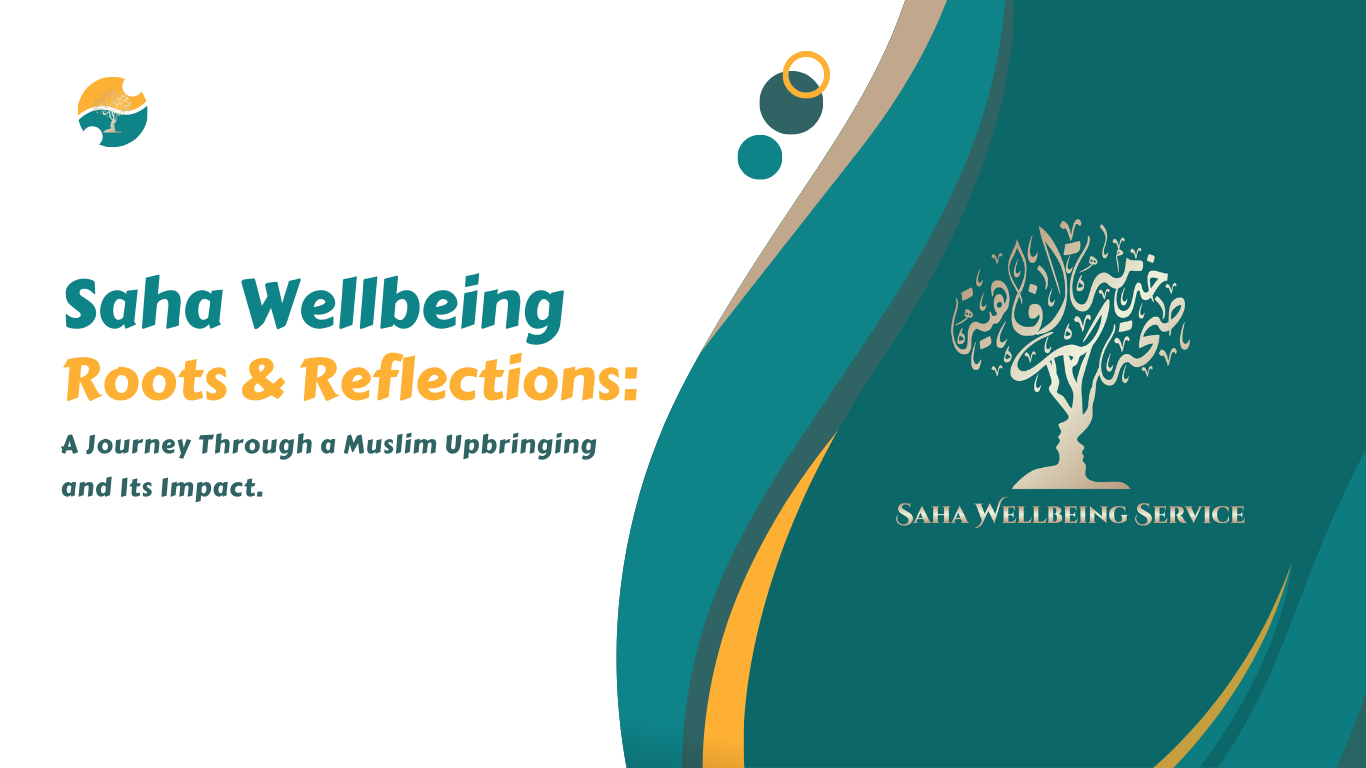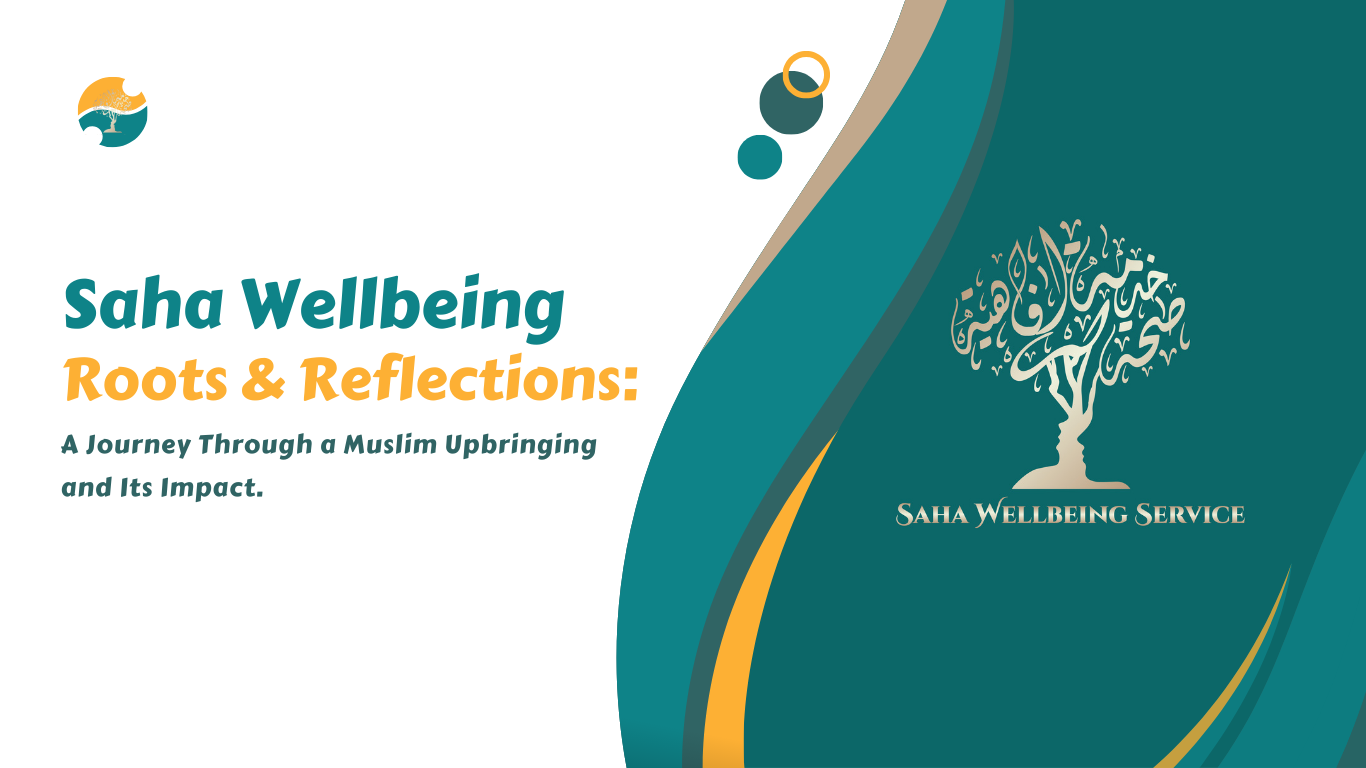Exploring the Impact of Upbringing on Mental Health: Introducing Our New Survey


Exploring the Impact of Upbringing on Mental Health: Introducing Our New Survey
Click Here for survey:
https://forms.gle/y7AZEHWUCSBBVqZA6
At Saha Wellbeing, we understand that mental health is deeply intertwined with our life experiences, especially those from childhood. The way we were raised, the emotional support we received, and the cultural and religious norms we were exposed to can all play significant roles in shaping our mental wellbeing as adults. To help shed light on these influences and foster greater self-awareness, we’ve created a new survey titled "Roots & Reflections: A Journey Through a Muslim Upbringing and Its Impact."This survey invites you to reflect on your personal upbringing and explore how it may have influenced the way you manage emotions, navigate relationships, and handle conflict. Through this process, we hope to identify patterns and trends that can help improve understanding of mental health challenges within the Muslim community and offer better support.
Why This Survey Matters
For many of us, the impact of childhood experiences on our adult lives can go unnoticed or unaddressed. Whether it's family dynamics, cultural expectations, or emotional responses to conflict, these elements form the foundation of our mental health. By participating in this survey, you will have the opportunity to reflect on your past experiences, uncover insights into your emotional wellbeing, and contribute to research that aims to help others on their mental health journey.The survey covers four key areas:
1. Understanding Upbringing
Our first section focuses on your early years and how your family environment influenced your emotional development. Were you raised in a nurturing atmosphere? Did you feel supported emotionally? By reflecting on these aspects of your upbringing, you can better understand how your childhood has shaped your self-esteem, confidence, and sense of identity today.
2. Regulating Emotions and Conflict Resolution
How we learn to process emotions and handle conflict often starts in the family home. This section explores the emotional tools and strategies you were given as a child. Did you feel safe expressing your feelings? How did your family deal with conflict? Reflecting on these experiences can shed light on your current emotional regulation and conflict resolution skills.
3. Cultural and Religious Norms
Cultural and religious teachings are powerful forces that influence how we see ourselves and navigate the world. In this section, you’ll reflect on how these norms shaped your upbringing. Were there specific cultural or religious expectations that guided your behavior and self-image? Did these norms offer comfort, or did they create pressure? Understanding these influences can provide important insights into your mental health.
4. Relationship Patterns and Attachment
Early relationships, particularly with parents and siblings, shape how we connect with others as adults. This section invites you to explore your attachment style, trust in relationships, and the patterns you notice in both friendships and romantic partnerships. Do you find it easy to form deep connections, or do you struggle with trust and vulnerability? These insights can help you better understand your relationship patterns.
Why Self-Reflection Can Be Challenging
While self-reflection is a powerful tool for growth, it can also bring up difficult emotions. For some, reflecting on childhood experiences, especially those related to trauma or emotional neglect, may be triggering. We encourage anyone taking part in the survey to ensure they are in a comfortable mental and emotional space to explore these topics. If you feel overwhelmed or distressed, it’s important to pause and take care of your wellbeing.
Support and Resources
If at any point during the survey you feel triggered or in need of support, please reach out to us at Saha Wellbeing. We are here to help you process any difficult emotions and provide guidance or resources to support your mental health journey.
Join Us on This Journey
By participating in this survey, you are not only reflecting on your own experiences but also contributing to a larger conversation about mental health within the Muslim community. Your insights will help us identify common challenges and patterns, allowing us to offer more tailored support to those who need it.We invite you to take part in "Roots & Reflections: A Journey Through a Muslim Upbringing and Its Impact" and begin a meaningful exploration of how your past has shaped your present and future. Together, we can build a stronger understanding of mental health and wellbeing.
Contact us if you have any questions, or if you’d like to learn more about the support services we offer at Saha Wellbeing.